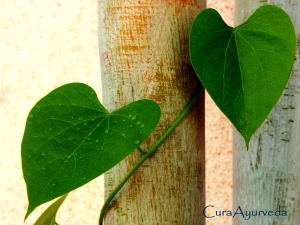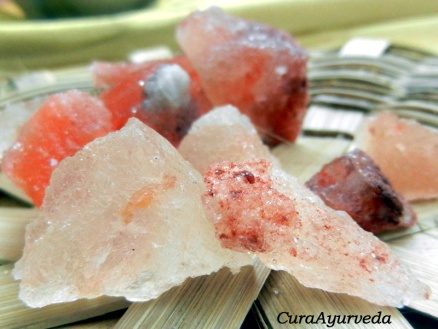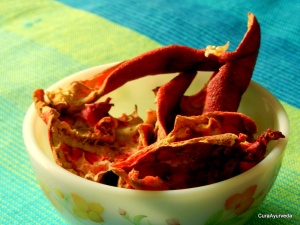fertility
Time for New Year Resolutions – Give your PCOD/PCOS Management a New Start with Ayurveda
Yet another year is almost coming to an end. It’s time again to form practical, critical and essential New Year resolutions. Especially if you are suffering from PCOD/PCOS, your new year resolution should be on the lines of -putting an end to the suffering (either due to inaction or wrong treatment decisions) and actively managing your life and health with Ayurveda!
I meet, see, observe and help a lot of women and my patients with PCOS. Complicated nature of PCOS, amount of time, patience and efforts it takes to bring it under control, often leads to quitting or avoidance!
Women suffer by surrendering their fate to PCOS, rather than managing it successfully with Ayurveda. Resorting to oral contraceptive pills, discontinuing Ayurvedic medicines and therapies as they do not give instant results, non-commitment to diet and lifestyle changes are the common issues that I see in my practice.
A lot of women with PCOS contact me regarding Ayurvedic management of PCOS. Very few get on board actively when I explain them the simple, yet effort-intensive nature of the Ayurvedic treatment for PCOS.
Ayurvedic PCOS management is thorough, as it involves modifications in diet and lifestyle based on every woman’s unique body type (that is assessed individually). It does require efforts and commitment both on part of the patient as well as the Ayurvedic practitioner. Importance of such diet and lifestyle modification is for achieving:
- Long lasting effects in PCOS management
- Improved quality of life
- Sustained weight loss
- Enhanced fertility
- Good psychological welbeing
- Prevention of complications (Diabetes, heart diseases, infertility etc.)
Ayurvedic management of PCOS is highly effective and far sighted. It prioritizes the health of women with PCOS and pro-actively protects it for years to come. Ayurveda does not limit itself by only regularizing menstruation. Irregular menses is only the tip of iceberg, compared to the massive hormonal and metabolic imbalance of PCOS. Also, Ayurvedic medicines and therapies are safe. They do not come with serious side effects like lowered fertility, obesity, deep vein thrombosis etc. which are commonly experienced with contemporary medicines. All that Ayurveda needs is a determined patient, positive mind-set and a commitment to get healthy! Ayurveda is what PCOS requires!
As this year ends, do not put your PCOS issues on the back burner. PCOS issues are not the ones which will resolve with time- they only get complicated! Do not suppress the symptoms of PCOS with easy medications- they will come back with 10 times the severity!
Take an early New Year resolution, move a step ahead from being a defeated thinker to a successful doer! Manage you PCOS with Ayurveda – Stop suffering and start living – not just for next year, but for years to come!
5 Ayurvedic Medicines For PCOS | PCOD- Poly Cystic Ovarian Syndrome & Disease
PCOS is a leading cause for obesity, menstrual irregularity, sub-fertility and infertility in women across the world. Persistent acne, hair loss, unwanted facial hair and dark pigmentation of skin especially around the neck i.e. acanthosis nigricans, add to the woes of women with PCOS.
Underlying insulin resistance, high level of male hormone testosterone i.e. Hyperandrogenism; imbalance of LH- Luteinizing hormone and FSH- follicle stimulating hormone, make PCOS a very complex metabolic disorder.
Ayurvedic treatment has a holistic approach towards management of PCOS. Each patient is given a unique therapy based on her specific health needs due to PCOS, rather than a one-size-fits-all approach. Such personalized approach helps in re-balancing the hormones naturally. Ayurvedic therapy focuses on balancing tissue nutrition, rectifying the imbalance of dosha-bio-energies that govern the body and boosting metabolism. Ayurvedic therapies also help in gradual and wholesome weight loss, reduce hair, facial hair growth and reduces acne.
Thus, Ayurvedic therapy not only helps in controlling PCOS; it also helps in restoring health and well-being.
The main aim of Ayurvedic therapy in women with PCOS are:
- Detoxification of body
- Strengthening and revitalizing the female reproductive system and regularizing menstrual cycles.
- Rectifying hormonal imbalance
Five common Ayurvedic medicines that help in the management of PCOS:
- Shatavari (Asparagus racemosus)
Shatavari helps in promoting normal development of ovarian follicles, regulates menstrual cycle and revitalizes the female reproductive system. Shatavari also helps in combating the hyperinsulinemia- i.e. high levels of insulin, mainly due to its phytoestrogen (natural plant based estrogen).1
- Guduchi (Tinospora Cordifolia)
Guduchi is a powerful anti- inflammatory herb. Chronic inflammation in tissues is the root cause for insulin imbalance and ovarian cysts. Guduchi helps in revitalizing all the body tissues and boosts metabolism naturally. It also helps in lowering insulin resistance.
- Shatapushpa (Foeniculum vulgare)
Fennel seeds also known as shatapushpa in Sanskrit are a good supplement for PCOS. They are rich source of phytoestrogens. Phytoestrogens in fennel, helps in reducing insulin resistance and in bringing down the inflammation in PCOS. Phytoestrogens are also believed to help reduce the cellular imbalance which leads to metabolic disturbances in PCOS.2
- Triphala
A mixture of three fruits- Amalaki (Emblica officinalis), Haritaki (Terminalia chebula) and Bibhitaki (Terminalia bellerica) blended in it; Triphala is one of the most popular Ayurvedic classical formulations! It is a rich source of vitamin C- a powerful natural antioxidant that helps in reducing inflammation by scavenging free radicals. Triphala helps in cleansing and detoxifying your system and hence is best taken prior to taking any other Ayurvedic medicines.
- Aloe Vera- Kumari (Aloe barbadensis)
Aloe vera is yet another Ayurvedic herb that is extremely beneficial in treating PCOS. It helps in regularizing the menstrual cycles, promotes normal mestruation and normalizes ovarian hormonal imbalance.3
Note : The prescription of the above medications should be administered by a trained Ayurvedic doctor. The above recommendations should not be taken without proper consultation from a Ayurvedic doctor. My experience has been that – proper diet , lifestyle , yoga combined with Ayurveda has very high chances of managing the condition.
For consultations on PCOS and other women’s health condition, please refer to my services section.
References:
- Hannan, J. M. A., et al. “Antihyperglycaemic activity of Asparagus racemosus roots is partly mediated by inhibition of carbohydrate digestion and absorption, and enhancement of cellular insulin action.” British Journal of Nutrition 107.09 (2012): 1316-1323
- Jungbauer, Alois, and Svjetlana Medjakovic. “Phytoestrogens and the metabolic syndrome.” The Journal of steroid biochemistry and molecular biology 139 (2014): 277-289
- Maharjan, Radha, Padamnabhi S. Nagar, and Laxmipriya Nampoothiri. “Effect of Aloe barbadensis Mill. formulation on Letrozole induced polycystic ovarian syndrome rat model.” Journal of Ayurveda and integrative medicine 1.4 (2010): 273.
Saindhav- The Amazing Himalayan Rock salt
Saindhav – the Himalayan rock salt, pink salt or Halite has been revered as the most superior  among all types of salts (Lavana) in Ayurveda. Named after its origins in Sindh region (now in Pakistan) i.e. Indus Valley Saindhav belongs to the highest echelon of functional foods in Ayurveda. It was formed about 500 millions of years ago during the Cambrium geological era, when the primordial ocean dried up, leaving pockets of salts sealed inside layers of earth and rock.
among all types of salts (Lavana) in Ayurveda. Named after its origins in Sindh region (now in Pakistan) i.e. Indus Valley Saindhav belongs to the highest echelon of functional foods in Ayurveda. It was formed about 500 millions of years ago during the Cambrium geological era, when the primordial ocean dried up, leaving pockets of salts sealed inside layers of earth and rock.
Discovered thousands of years ago, Saindhav gained popularity in 325 BC when Alexander The Great noticed it during his battle with King Poras on the banks of river Jhelum in the Punjab region (now in Pakistan). An entire mountain range in this ancient Indian province was named ‘Salt range’ due to the large deposits of Rock salt found in these mountains. The second largest rock salt mines in the world- the Khewra mines is in the Jhelum district of Punjab which is now a part of Pakistan. It is also the largest source of authentic Saindhav or Himalayan Rock salt.
Saindhav has been extensively used both as a food and medicine in Ayurveda. Sealed inside the earth for thousands of years, saidhava is free from contamination of environmental pollutants and toxins. Like many other principles and practices of Ayuveda, use of Saindhav has also been incorporated in many rituals of Hindu religion in India. Foods consumed during Hindu religious fasting rituals are cooked exclusively with Saindhav. Unlike other salts which promote indulgence and temptation, Saindhav is believed to be dominant in Sattva guna which promotes positive attitude and purity of mind.
Qualities of Saindhav..
To read my full article about the health benefits of the Himalayan rock salt- visit http://www.spiceflair.com/saindhav-the-amazing-himalayan-rock-salt/
Amazing Health Benefits of Pomegranate Peels.
Pomegranate- bright red, with ruby colored, jewel like seeds/arils embedded within it, has been revered as a divine fruit. Believed to  have flourished in the Garden of Eden, Pomegranate finds itself as a part of ancient symbolism, rituals, beliefs and folk practices.
have flourished in the Garden of Eden, Pomegranate finds itself as a part of ancient symbolism, rituals, beliefs and folk practices.
Vedas – the most ancient texts of Hindu Philosophy, consider Pomegranate as a symbol of fertility and prosperity. In Chinese symbolism, pomegranate with its bright red skin and tasty seeds, is a symbol of abundance, passion, happiness and fertility.1 Its beauty and mouth refreshing flavor also comes with equally amazing health benefits. The flowers, leaves, bark, peel and off-course the arils or seeds of pomegranate are all edible and have potent medicinal qualities.
Pomegranate peels left to dry in an old brass plate, near smoldering ‘chulha’ (cooking stove that uses wood as fuel) or in the sun, was a common sight at my maternal home in Goa. Pomegranate peels were one of the most precious ingredients of my grandmother’s medicine box. Throwing away peels of pomegranate was criminal according to her! With so many health benefits under its ‘skin’, wasting peels of fruits like pomegranate is indeed a crime.
Ayurveda holds pomegranate fruit in high regards due to its ability to pacify all the three doshas. It has been considered useful and wholesome in many diseases ranging form anemia, dysentery, diarrhea, heart disease, intestinal worms and many more. Peels or rind of pomegranate which is astringent and bitter in taste can be used in treating many disorders. Due to the Kashaya- tikta i.e. astringent- bitter taste of the peel, it helps in curbing swellings, inflammations, diarrhea, dysentery, bleeding etc. It promotes healing, boosts digestion and is a tonic for the liver. It is packed with antioxidants and can be used as a potent preservative in foods as well as in pharmaceutics.2 In fact, pomegranate peel has more antioxidants than the arils.3 Pomegranate peels also have anti-bacterial activity.4
How to dry pomegranate peels?
- Choose only organic pomegranates for saving the peels.
- Score or give longitudinal cuts on the peel of the fruit. Then, gently remove the peels with hands or by using a paring knife.
- Once all the arils/ seeds are collected, cut or tear the pomegranate peel into pieces of about one inch size.
- Arrange thinly in a plate or a cookie sheet so that no peels are overlapping each other.
- Place in a sunny spot every day till the peel gets hard and loses all the moisture.
- Once the dried peels have completely cooled, place them in a zip-lock bag or an airtight container.
A must have home remedy in your medicine cabinet; pomegranate peel can be used for giving relief in following conditions:
To read my complete article and handy tips about using pomegranate peels go to- http://www.spiceflair.com/amazing-health-benefits-of-pomegranate-peels/
